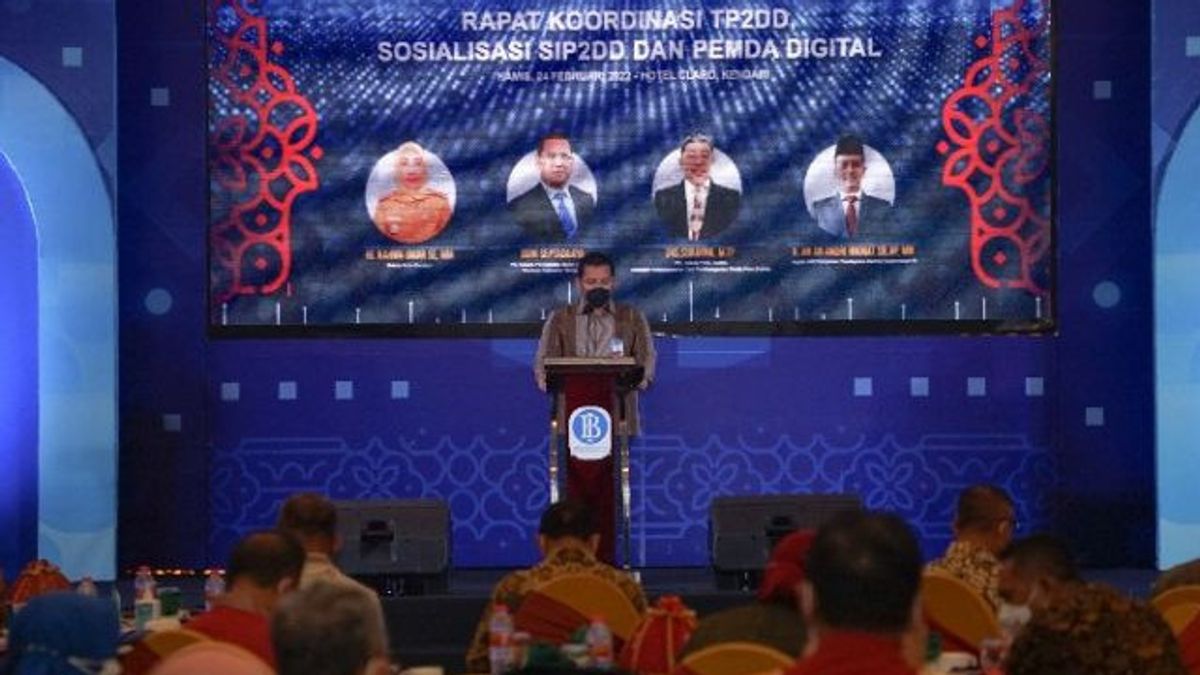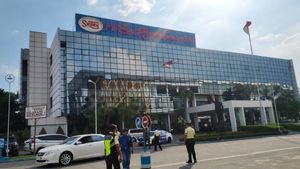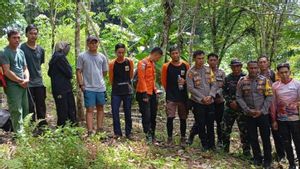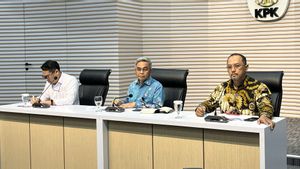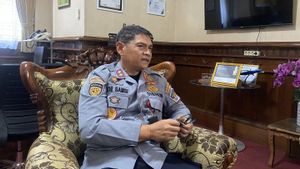KENDARI – In the context of optimizing Regional Original Revenue (PAD), the Southeast Sulawesi Bank Indonesia Representative Office (KPwBI) and the Ministry of Home Affairs collaborated to create a regional digital financial system.
The Acting Head of the Southeast Sulawesi KPwBI, Doni Septadijaya, in Kendari, Saturday, February 26, said that this was done based on Presidential Decree No. 3 of 2021 concerning Task Forces and the Acceleration of Regional Digitization. In addition, Permendagri Number 56 of 2021 concerning Electronification of Regional Government Transactions.
"In the context of optimizing PAD and accountability for financial transactions, all regions are asked to electronify regional income and expenditure channels," Doni said, as quoted by Antara.
In order to speed up its implementation, the Southeast Sulawesi KPwBI held a Coordination Meeting of the Regional Digitization Acceleration and Expansion Team (TP2DD). This meeting was attended by officials from Southeast Sulawesi and technical teams from each TP2DD from 17 regencies/us in Southeast Sulawesi.
Doni said that currently a Team for the Acceleration and Expansion of Regional Digitalization (TP2DD) has been formed in all 17 regencies/cities in Southeast Sulawesi and one provincial TP2DD.
He explained the presence of TP2DD to realize transaction transparency, support governance, and integrate regional financial management systems which lead to increasing regional income.
The daily executive of the Southeast Sulawesi Regional Secretary, Suharno, conveyed the message of the Southeast Sulawesi Governor to jointly advance the region through the expansion of the digital financial ecosystem in Southeast Sulawesi. Especially through TP2DD by creating innovations to encourage the use of non-cash transactions. For example in terms of paying taxes, collecting user fees, and other PAD.
Meanwhile, the Head of the Sub-Directorate of Regional Revenue of the Ministry of Home Affairs, Andri Hikmat, said that the potential for increasing PAD is very high, mainly through electronification of channels for paying taxes, levies, and other PAD.
However, according to him, there are five things that local governments must possess in supporting the success of electronification in the regions. Such as regulation, commitment, consistency, human resources and organizational structure, facilities and infrastructure.
He assessed that by expanding the electronification of payment channels for taxes, levies, and other PAD, it would be able to increase the enthusiasm of the community in contributing to regional development.
In addition, he added, by implementing payment electronification, it would be much easier for the public to pay levies and taxes, while from the local government's point of view, financial accountability could be improved.
"We hope that this meeting can provide benefits to encourage innovation in the implementation of Regional Government Transaction Electronification (ETP) in each region," said Andri.
The English, Chinese, Japanese, Arabic, and French versions are automatically generated by the AI. So there may still be inaccuracies in translating, please always see Indonesian as our main language. (system supported by DigitalSiber.id)
